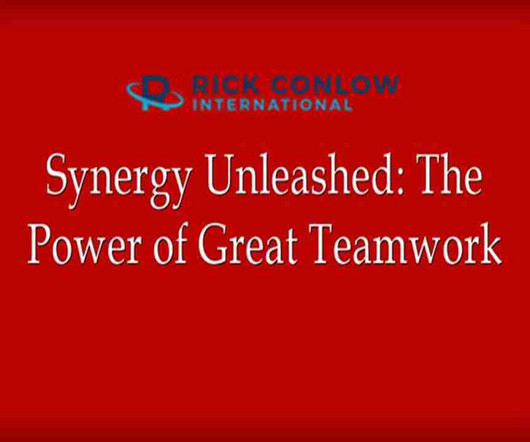Is Executive Coaching Really Worth it?
Organizational Talent Consulting
AUGUST 1, 2022
Improved Emotional Intelligence (EQ) A recent Harvard study revealed that a leader's emotional intelligence (EQ) matters more than their mental ability (IQ). And a key outcome of executive coaching is improved emotional intelligence. A good executive coach is trained and qualified.














Let's personalize your content